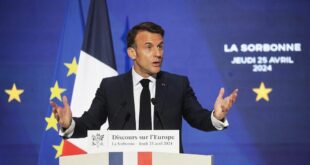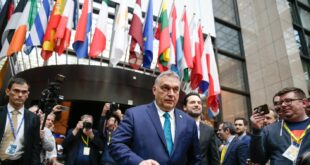The United States on Friday urged Japan and South Korea to speak out against China’s treatment of minority Muslims and its actions toward Hong Kong and Taiwan, despite their trading relationships with Beijing.
The unusually blunt comments directed at close U.S. allies came from Marc Knapper, deputy assistant secretary for Korea and Japan, as Tokyo and Seoul were set to join 13 other Asia Pacific economies this weekend in signing a China-backed Regional Comprehensive Economic Partnership (RCEP), which could become the world’s largest free trade agreement.
Knapper also stressed the importance of South Korea, Japan, Taiwan and Southeast Asian countries working with the United States and each other to ensure their citizens’ data was protected from China.
Speaking from Seoul at an online event hosted by the Brookings Institution think tank, Knapper said Washington understood Japan and South Korea had “very complex and nuanced relationships” with China.
“Regardless of the fact that there are very important trading relationships and others … we all should be able to stand up and speak out when we see bad behavior from China.”
Knapper said Washington was not asking Japan and Korea to”cut off or contain” China, but added: “We hope and expect that Korea and Japan and others will stand up and speak out on behalf of these things.
“It’s the responsibility of countries like the United States, countries like South Korea, countries like Japan, to accept the responsibility of speaking out on behalf of democracy, speaking out on behalf of freedom, because if we don’t, who will?”
A U.S.-China trade war and U.S. President Donald Trump’s”America First” retreat from predecessor Barack Obama’s “pivot” toward Asia have given impetus to complete the RCEP, which is widely seen as Beijing’s chance to set a regional trade agenda.
Democrat Joe Biden’s U.S. election win could challenge that, with the former vice president signaling a return to stronger U.S. multilateralism, although moves on trade are not expected to be his first priority.
 Eurasia Press & News
Eurasia Press & News



